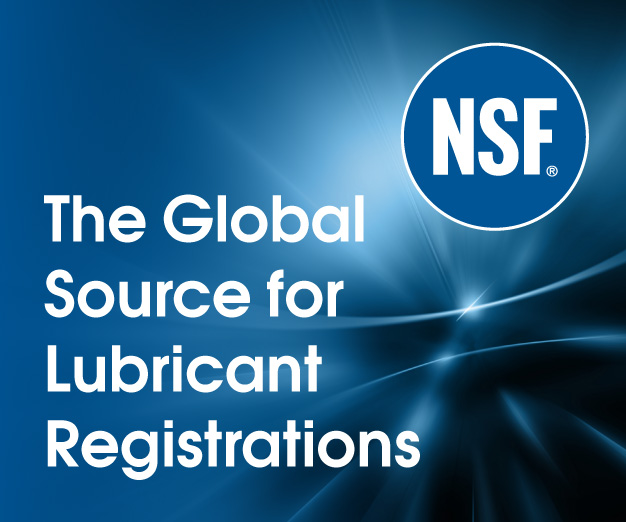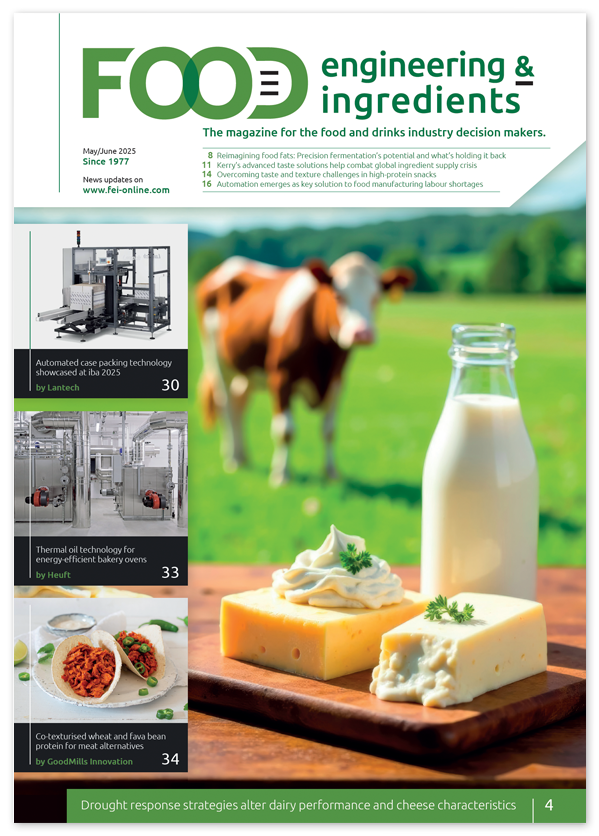Seize the organic opportunity: a guide to certification success
By Francesca Cozzo, Quality Assurance Development & Marketing Manager at Bioagricert, a FoodChain ID company
The category of organic food has been an industry success story over the last decade, experiencing remarkable double-digit growth year on year. Sales of organic food worldwide topped US$132 billion in 2021 and consumer interest isn’t slowing down – the market is anticipated to grow at a compound annual growth rate (CAGR) of over 12% from 2022 to 2029.1,
This astonishing trajectory provides a major opportunity for food brands and manufacturers to meet increasing consumer demand with on-trend organic products. Food producers that wish to launch new organic products – or reformulate existing favourites for the organic market – may be conscious of the host of hurdles they must navigate to achieve full compliance with organic standards. In this article, we’ll provide a comprehensive roadmap on how to navigate the organic certification process, so that you can capitalise on the rapidly expanding organic market.
Why organic now?
Organic food became a distinct consumer category in the 1970s, when environmental conscientiousness first went mainstream. Similar to that time, today’s consumers are increasingly aware of the positive environmental benefits of organic, and parents in particular want to feed their children food which they believe benefits people and planet. In general, consumers are increasingly approaching health from a more holistic perspective and are more aware of the role diet plays in disease prevention, with the potential health benefits of organic produce driving uptake. ,4
Once a niche category, organic has gained widespread popularity, while still commanding high price premiums due to its association with health and sustainability. Many food companies have expanded into organic over the past few years – either by acquiring brands or launching their own lines – in response to the category’s strong growth. But manufacturers that proactively obtain organic certification today still have the opportunity to carve out a competitive position in this expanding category.
Equivalency agreements open access to multiple lucrative markets
Global organic demand continues to surge, with sales outside North America now representing over 90% of total organic food sales. Equivalency agreements between countries unlock access to multiple lucrative overseas markets as products certified in one region can be exported and sold in another with minimal additional documentation. For instance, the United States and the European Union have broadly recognised each other’s respective organic programmes since 2012. The EU also has equivalency agreements in place with Canada, Japan, South Korea, Australia, India and many other territories – supporting brands to expand across multiple markets with one process.
Of course, some supplementary paperwork is still required for compliant organic exports and there are exceptions to every rule. Overall, organic equivalency agreements dramatically streamline access to global markets, allowing brands to efficiently utilise cross-border opportunities. Partnering with a third-party certification body that’s well-versed in multiple jurisdictions can facilitate smooth access.
Common hurdles to obtaining organic certification – and how to navigate
Organic food certification remains well-respected as a standard because achieving it requires full compliance with stringent rules and regulations set by government agencies globally. The guidelines encompass every stage of the production process, from ingredient sourcing to finished products. While standards vary slightly across global jurisdictions, the foundational principles of organic production are mostly stable.
At its core, organic certification requires A-to-Z scrutiny of production processes, encompassing inputs, land management practices, documentation, separation controls and annual audits by accredited third-party agencies. While achieving trusted organic status can seem daunting initially, common hurdles to obtaining trusted certification can be overcome with diligence.
A critical first step to ensuring a smooth certification process is making sure that all personnel have a deep understanding of relevant organic standards for various target markets. The initial investment required to adequately train staff helps to mitigate costly mistakes later in the process and lays the foundation for compliant systems. Well-informed teams will be better placed to overcome other common challenges, such as product formulation and labelling.
As part of the process, sourcing compliant organic ingredients may require additional vetting of suppliers and formulations may require adjustment for consistency of flavour and texture. Labelling and packaging updates will need to be refreshed to execute novel brand messaging that reinforces organic integrity. But with appropriate planning for lead times and the right expertise, companies can readily overcome these hurdles.
An additional consideration is how manufacturing facilities and equipment may need adjustments to comply with organic standards. Rigorous separation of organic and non-organic ingredients is necessary to prevent contamination and achieve trusted organic status. If non-organic and organic products are produced on the same site, thorough cleaning protocols between production runs is required. Protocols must also be consistent, which is why training employees on compliance requirements is critical to ensure processes match documented procedures.
Accurate record keeping is vital to gaining and maintaining organic certification. Every step of the supply chain requires a critical documentation trail that demonstrates adherence to organic standards over time. While this level of preparation may seem onerous, it pays dividends by significantly streamlining the certification process.
An organic system plan: the cornerstone of compliance
Part of this documentation stream is the organic system plan, a crucial, yet frequently underestimated task for food companies that are pursuing organic certification. These system plans provide a roadmap which codifies how facilities will maintain organic integrity at each stage of the production process.
Plans should outline compliant policies and procedures related to sourcing ingredients, production protocols, cleaning methods, storage and shipping controls, labelling specifics and record keeping. For instance, the organic system plan should specify how only allowed inputs will be utilised for crop or livestock production, outline comprehensive cleaning procedures for equipment between production runs and describe rigorous controls to prevent commingling of organic and non-organic ingredients.
Robust organic system planning lays the critical groundwork for smooth inspection and certification success by demonstrating preparedness and a strong understanding of organic requirements. Upfront preparation and thorough planning reduce the likelihood of protracted back-and-forth with certifiers by identifying and addressing potential weaknesses in your production process, reinforcing compliance readiness and avoiding last-minute scrambles to fix issues.
How long organic certification takes – and what impacts timelines
The journey to organic status typically takes between two to six months for most operators. However, timelines vary depending on production processes. Companies that are already following organic protocols usually certify faster than those starting from scratch, as existing expertise and compliant sourcing accelerates documentation and prevents non-compliance. Product composition also impacts timelines, as simple formulas with few ingredients generally certify faster than complex ones.
If current practices closely match organic standards, few facility adjustments may be required. But timelines can be delayed due to major production changes involving new equipment, inputs or procedures.
Key milestones in the certification process include initial application and document submission, compliance reviews and iterations with the certifier, on-site inspection and finally earning certified status after any non-compliances are addressed. While the journey varies for each manufacturer, partnering with an experienced certifier can help to streamline the process. With proper support and preparation, operators can gain organic status in a timely manner and capitalise on growing market opportunities.
Partner with a trusted certifier
Food manufacturers seeking to get ahead in the growing organic market should partner with a reputable, accredited certifying body like Bioagricert and Cosmocert, both FoodChain ID entities.
Third-party certification bodies prioritise integrity, stringent certification protocols and transparency to build consumer trust in their clients’ organic claims. Accredited certifying agents which span multiple jurisdictions can support brands in submitting accurate documentation to access desired export regions under equivalency agreements. By doing so, food and beverage companies benefit from immense time and cost savings versus securing separate certification for each country.
About FoodChain ID
FoodChain ID is a leading business-to-business technology and insights company, dedicated to keeping the food supply chain safe, compliant and transparent. A trusted provider of tailored technology, actionable insights and expertise within the food, nutrition and cosmetics industries, it serves over 30,000 customers and partners globally. Its expertise covers food safety and quality compliance, product development, testing and inspection, certifications, supply chain management and regulatory compliance.
With its mission to make it easier to keep the food supply chain safe and transparent, FoodChain ID leverages its global footprint, localised expertise and industry-leading technology to help food companies mitigate risk, navigate the complex regulatory landscape, manage supply chain efficiency and bring safe food products to market with speed and confidence.
About the author
Francesca Cozzo has nearly 20 years of experience in organic and sustainable certification for Bioagricert, a FoodChain ID company. She has managed accreditations for international organic standards such as the European Union, United States National Organic Program and the Japanese Agricultural Standard, as well as the qualification and training of Bioagricert technical staff worldwide. In addition, for the last six years, Francesca’s role expanded to include marketing, with responsibility for organic agriculture services throughout Europe.
FoodChain ID acquires US-based Organic Certifiers
FoodChain ID, a leader in global certification services, has acquired Organic Certifiers, Inc., one of the first certification bodies accredited in the United States for the USDA National Organic Program. With the acquisition of Organic Certifiers, FoodChain ID and its global entities have collectively enhanced the organization’s status as an industry leader and are now a top five certifier for the USDA National Organic Program by total number of operations.
Organic food sales in the United States continue to grow, reaching a record value of nearly $62 billion in 2022. Key drivers for growth are consumer interest in sustainability and the health halo of organic products, according to the Organic Trade Association. To meet the market demand, food growers and manufacturers require reliable certification experts versed in the details of organic certification.
FoodChain ID’s organic certification accredited entities, Bioagricert and Cosmocert, are both pioneers in organic certification. Bioagricert and Cosmocert certify over 23,000 organic farms and producers annually across North America, Europe, Latin America and Southeast Asia. In addition, FoodChain ID’s dedicated teams are supporting supply chain participants with the upcoming enforcement deadline for the USDA’s Strengthening Organic Enforcement (SOE) Final Rule. Designed in response to increasingly complex food supply chains, distributors and other intermediaries must demonstrate compliance with the new USDA Organic Certification regulations by March 19, 2024.
Commenting on the acquisition, Heather Secrist, Senior Vice President, Technical Services Americas at FoodChain ID, said: “With over 25 years of experience in global sustainability certifications, FoodChain ID is committed to supporting a safe and transparent food supply. The addition of Organic Certifiers, Inc. to the FoodChain ID team deepens our capabilities and reaffirms our commitment to USDA Organic Certification. We’re pleased to add the expertise and operational excellence of the Organic Certifiers team.”
Susan Siple, founder and owner of Organic Certifiers, noted: “Organic Certifiers was established by my family in Ventura County, California, based on the need for common-sense, client-focused certification services. We approach organic certification with a dedication to forming long-lasting relationships between our team and clients.” Siple added, “I’m pleased to know that we will continue that commitment to clients now with FoodChain ID.”


